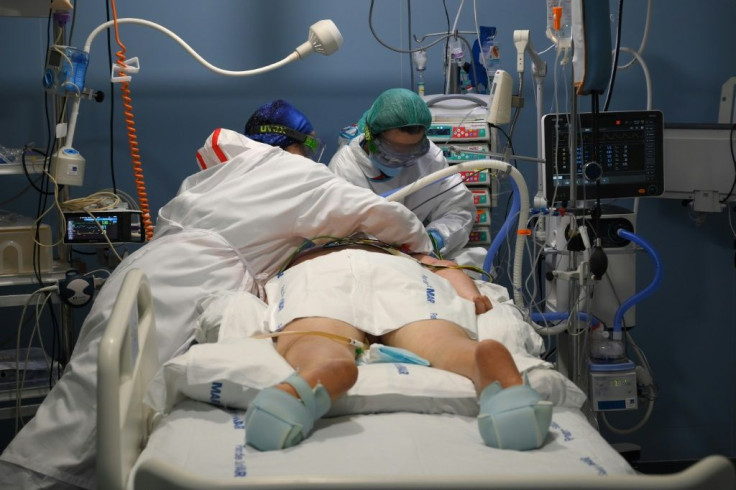More Than 40 People In US Infected With Omicron, Majority Vaccinated
Almost two weeks after the Omicron variant of COVID-19 was deemed a “variant of concern” by the World Health Organization, early data has indicated that the majority of cases in the U.S. are primarily among those who have been vaccinated. However, most of the reported cases of the virus strain are proving to be "mild."
Centers for Disease Control and Prevention Director Dr. Rochelle Walensky told the Associated Press that more than 40 people in the U.S. have been infected with the Omicron variant, with more than three-quarters of them vaccinated.
About one-third of the people infected with the Omicron variant had received their booster shots, Walensky told the news outlet.
The CDC reported that some of the infected patients had received their booster doses within the two-week period when the shot is working to reach full immunity, as reported by the AP.
Walensky maintained that data is very limited on the Omicron variant, and the CDC is working on a better understanding of what the mutation might mean for the U.S.
She told the AP, “What we generally know is the more mutations a variant has, the higher level you need your immunity to be. We want to make sure we bolster everybody’s immunity. And that’s really what motivated the decision to expand our guidance.”
The CDC recently expanded its guidance for booster shots for all adults, recommending Pfizer or Moderna booster doses six months after the second vaccine shot and a booster shot two months after the single-dose vaccine.
According to Walensky, of the reported cases of Omicron, one person has been hospitalized and no deaths have been reported.
Typical symptoms being recorded for Omicron included cough, congestion and fatigue, but she told the news outlet, in some cases, symptoms can become increasingly severe as days and weeks pass.
The Omicron variant was first detected in South Africa and has since been identified in 57 countries, according to the WHO.
WHO Director-General Tedros Adhanom Ghebreyesus said during a media briefing Wednesday that cases of the variant are expected to grow, adding, “Certain features of Omicron, including its global spread and large number of mutations, suggest it could have a major impact on the course of the pandemic. Exactly what that impact will be is still difficult to know."
He added, “We are now starting to see a consistent picture of rapid increase in transmission, although for now the exact rate of increase relative to other variants remains difficult to quantify.”
In the U.S., the first case of Omicron was detected on Dec. 1 in San Francisco. Since then, 43 cases have been confirmed in 19 states.

© Copyright IBTimes 2025. All rights reserved.





















